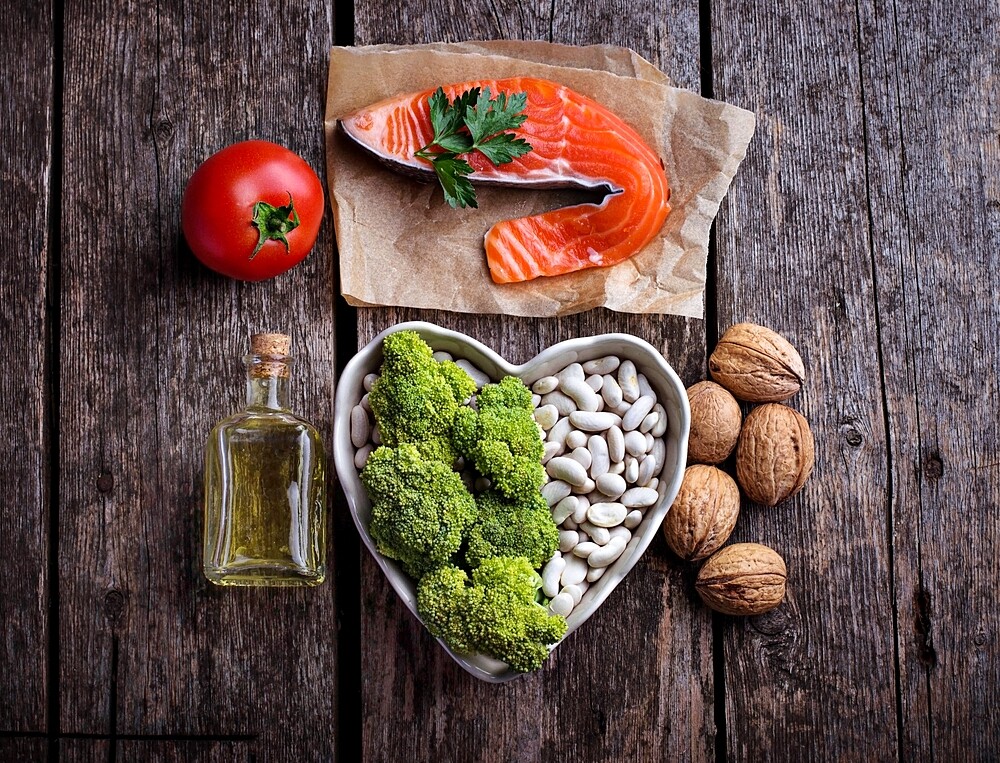There are many rumours and myths about cholesterol. We will tell you how you can implement a low cholesterol diet.
Low cholesterol diet: Introduction
- People with elevated cholesterol levels are dependent on a healthy, low cholesterol diet. It is debatable whether cholesterol levels can be significantly lowered through a targeted diet. However, it is clear that a healthy diet will at least not further increase the cholesterol level.
- Healthy food is an important element, but you should also focus on exercise and sports, as this has a positive effect on your cholesterol metabolism. The aim should also be to switch to a healthy, sustainable diet and not just to choose low cholesterol foods.
Good vs. bad cholesterol
Cholesterol is extremely important for the body, for example for the production of bile acids or hormones. The liver provides most of the cholesterol. The rest is absorbed through food.
Cholesterol is transported in the body together with protein and fat in so-called lipoproteins. The cholesterol in these building blocks can be divided into two types.
- HDL cholesterol: HDL stands for “High Density Lipoprotein”, a lipoprotein with a high density. HDL carries the cholesterol from the tissue back to the liver and is also known as “good” cholesterol, because a high HDL level can reduce the risk of diseases such as strokes or heart attacks.
- LDL cholesterol: LDL in turn stands for low density and transports the cholesterol from the liver into the body. LDL is called “bad” cholesterol because high levels are associated with diseases such as arteriosclerosis or cardiovascular problems.
5 important rules
- Vegetables and fruit as a basis: You can and should consume vegetables and fruit without restrictions. They contain no fat and few calories (especially vegetables), but be careful with olives, avocados and soybeans, as they do contain fat. Fruit and vegetables also contain many vitamins and minerals (micronutrients) and are therefore without doubt healthy foods.
- Fish and low-fat meat: Fish is generally a good supplement or substitute for meat. Fish contains many unsaturated fatty acids, which are among the healthy fats. You should avoid crabs, lobster or crustaceans as they contain a lot of cholesterol. There are also fish such as eel or mackerel, which contain many saturated fatty acids. So eat rather rarely!
- Use vegetable fats: Animal fats are high in saturated fat and cholesterol. In general, you should use fats sparingly and mainly use vegetable fats such as olive or coconut oil. Vegetable fats consist of many unsaturated fatty acids and can positively affect your cholesterol level.
- Low-fat dairy products and few eggs: eggs are the foodstuff that contains the most cholesterol. Almost 300 milligrams and thus the maximum daily amount is found in egg yolk. People with high cholesterol levels should leave it at two to three eggs a week.
- Sweets only in moderation: Whether it’s cake, chocolate or gummi bears – healthy food looks different! Sweets contain many calories and are rich in sugar and fat. With a low-cholesterol diet, you should only eat a small portion of sweets every now and then.

